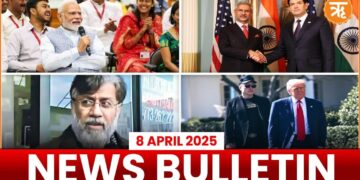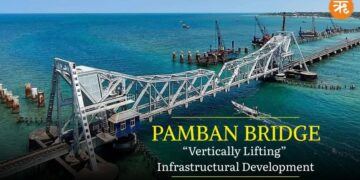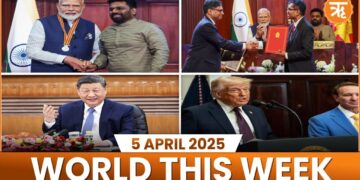On July 1, 1938, renowned flutist Hariprasad Chaurasia was born in Allahabad, Uttar Pradesh. Despite his father being a wrestler, Chaurasia’s passion for music led him to secretly learn it, starting with the tabla. Spending his childhood in Banaras, he later mastered the flute and revolutionized Indian music. Alongside santoor player Shivkumar Sharma, he formed the famous duo Shiv-Hari, composing music for Hindi films like “Chandni,” “Darr,” and “Lamhe.” Honored with the Padma Vibhushan in 2000, Chaurasia has also received international accolades, including France’s ‘Knight of the Order of Arts and Letters’ and recognition from the British royal family.
Flutist Hariprasad Chaurasia was born on July 1, 1938
He has given melodious music in many Hindi films
He was awarded the Padma Vibhushan in the year 2000
State Bank of India (SBI) celebrates its foundation day on July 1, 1955. As India’s largest and oldest bank, its origins trace back to the Bank of Calcutta, established in 1806. Renamed the Bank of Bengal in 1809, it was joined by the Bank of Madras and the Bank of Bombay in the 1840s, collectively known as the Presidency Banks. These merged on January 27, 1921, forming the Imperial Bank of India. On July 1, 1955, it was nationalized and renamed SBI. Headquartered in Mumbai, Maharashtra, SBI boasts thousands of branches and ATMs across India and internationally.
State Bank of India’s foundation day is celebrated on July 1, 1955
– SBI is the largest and oldest bank in India
– SBI is headquartered in Mumbai, Maharashtra
On July 1, 1879, India issued its first postcards, marking a significant milestone in its postal service history. Initially priced at half an anna, these postcards provided an affordable and straightforward way for people to send messages without envelopes. Modeled after the Austrian invention in 1869, the postcard quickly gained popularity for its simplicity and accessibility across different social classes. Despite advancements in electronic communication, postcards remain relevant today, continuing to be issued by the Indian Postal Department with varied designs and uses, preserving their unique charm and utility.
Postcards were first issued in India on July 1, 1879
– The sender’s address was written on one side of the postcard and the message on the other side
– The postcard was invented in Austria in 1869
GST, implemented in India on July 1, 2017, revolutionized the country’s taxation system by replacing multiple indirect taxes with a unified, transparent framework. The GST Act, passed on March 29, 2017, consolidated taxes like Central Excise Duty, Service Tax, VAT, and others, previously levied by Central and State Governments. The 101st Constitutional Amendment paved the way for GST’s implementation, establishing the GST Council comprising representatives from both levels of government. This council convenes regularly to make decisions on GST rates and policies, ensuring a streamlined and efficient tax regime for the nation.
Goods and Services Tax (GST) was implemented in India on 1 July, 2017
– 101st Amendment was made in the Indian Constitution to implement GST
– Goods and Services Tax Act was passed in the Parliament on 29 March, 2017
National Doctor’s Day is observed annually on July 1 to honor the birth and death anniversary of Dr. Bidhan Chandra Roy, a renowned physician and former Chief Minister of West Bengal. Celebrated since 1991, this day recognizes doctors’ significant contributions to healthcare and medical education. Dr. Roy, awarded the Bharat Ratna, India’s highest civilian honor, dedicated his life to advancing medical services and education. The theme for this year, ‘Healing Hands, Caring Hearts,’ underscores the compassionate dedication of doctors who not only treat illnesses but also promote community health and well-being.
National Doctors Day is celebrated every year on 1 July
– National Doctors Day was first celebrated in the year 1991
– It is celebrated to commemorate the birth and death anniversary of Dr. Bidhan Chandra Roy
















Comments